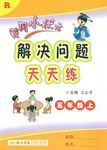题目内容
My English teacher’s humor was ______ make every student burst into laughter.
A. so as to B. such as to
C. such that D. so that
练习册系列答案
 黄冈小状元解决问题天天练系列答案
黄冈小状元解决问题天天练系列答案 三点一测快乐周计划系列答案
三点一测快乐周计划系列答案
相关题目
题目内容
My English teacher’s humor was ______ make every student burst into laughter.
A. so as to B. such as to
C. such that D. so that
 黄冈小状元解决问题天天练系列答案
黄冈小状元解决问题天天练系列答案 三点一测快乐周计划系列答案
三点一测快乐周计划系列答案